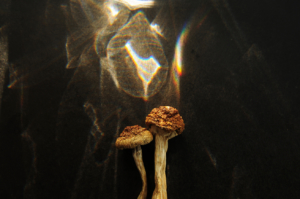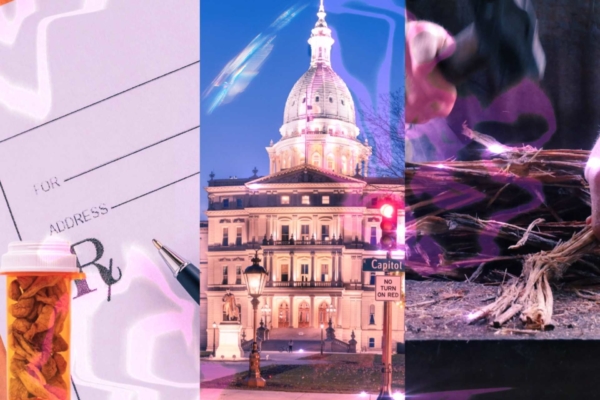
Colorado, home to the first U.S. city to decriminalize psilocybin, is considering some major statewide initiatives to reform psychedelic policy.
Lawmakers from the Centennial State filed a bill on Friday to commission a year-long study on the effectiveness of plant-based medicines in support of mental health treatment. The move came just a few days before Denver-based activists filed revised versions of two ballot initiatives aimed at legalizing psilocybin across the state and creating licensed “healing centers” to administer psychedelic-assisted therapy.
Co-sponsored by Rep. Representative Alex Valdez (D), Sen. Joann Ginal (D), and Rep. Edie Hooton (D), House Bill 1116 would establish a review panel to study the healing effects of dimethyltryptamine (DMT), ibogaine, and “magic” mushroom ingredients psilocybin and psilocin before making policy recommendations to the governor and the Colorado General Assembly, among others.
“I think we’re looking for anything and everything that can help,” Valdez told Westword, explaining he was inspired after reading about promising research on psychedelic-assisted mental health treatments. “We’ve known for years in some sense that, through natural medicine, the earth provides a lot of the things that we need as people,” he continued. “Our thought was, how do we do it right?”
The trio of lawmakers has reportedly been working with Vicente Sederberg, a law firm which assisted Denver’s successful 2019 campaign to decriminalize psilocybin, making it the first of several major U.S. cities to enact such a measure.
Their proposed bill’s 17-person review panel notably calls for representation from Indigenous communities, criminal defense lawyers, and military veterans as well as physicians, natural healers, and plant-medicine advocates. The panel would ultimately be tasked with not only exploring a state-wide rescheduling and decriminalization of the psychedelics, but also looking into production and distribution of the plant-medicine as well as determining dosage guidelines in the treatment of mental health issues.
The revised ballot proposals, meanwhile, were filed by entrepreneur Veronica Perez and Kevin Matthews, a psychedelics advocate who spearheaded Denver’s aforementioned effort to decriminalize psilocybin. While the original versions of the proposals sought to legalize the possession and cultivation of a wide range of hallucinogenic substances, the revised ones are simplified and more limited in scope.
They outline a two-step solution which allows for only psilocybin to be legalized and okayed for therapeutic use through June 2026, at which point the policy could then be expanded to cover other psychedelic medicines. The decision would be left to the Department of Regulatory Agencies in conjunction with a 15-member Natural Medicine Advisory Board which has yet to be established but promises to include members from varying backgrounds.
Other tweaks to the measures include the removal of explicit possession limits as well as newly added provisions to “ensure the regulatory access program is equitable and inclusive” for Indigenous cultures, military veterans, individuals lacking access to health care, and those disproportionately impacted by the war on drugs, with one of the provisions going so far as to specifically authorize people to petition courts for record sealing of past psychedelic-related convictions.
While the revised ballot measures and HB1116 are technically unrelated to one another, both come at a critical juncture for the plant-medicine movement as elected officials from both sides of the aisle push for significant psychedelic reform in every corner of the country. In just the past few weeks alone, lawmakers in Oklahoma, Virginia, Missouri, Utah, Kansas, Washington State, California, several other states have filed bills to have expand psychedelic research, lessen criminal penalties, and help further destigmatize plant medicines which have been shown to be effective in therapeutic settings.





